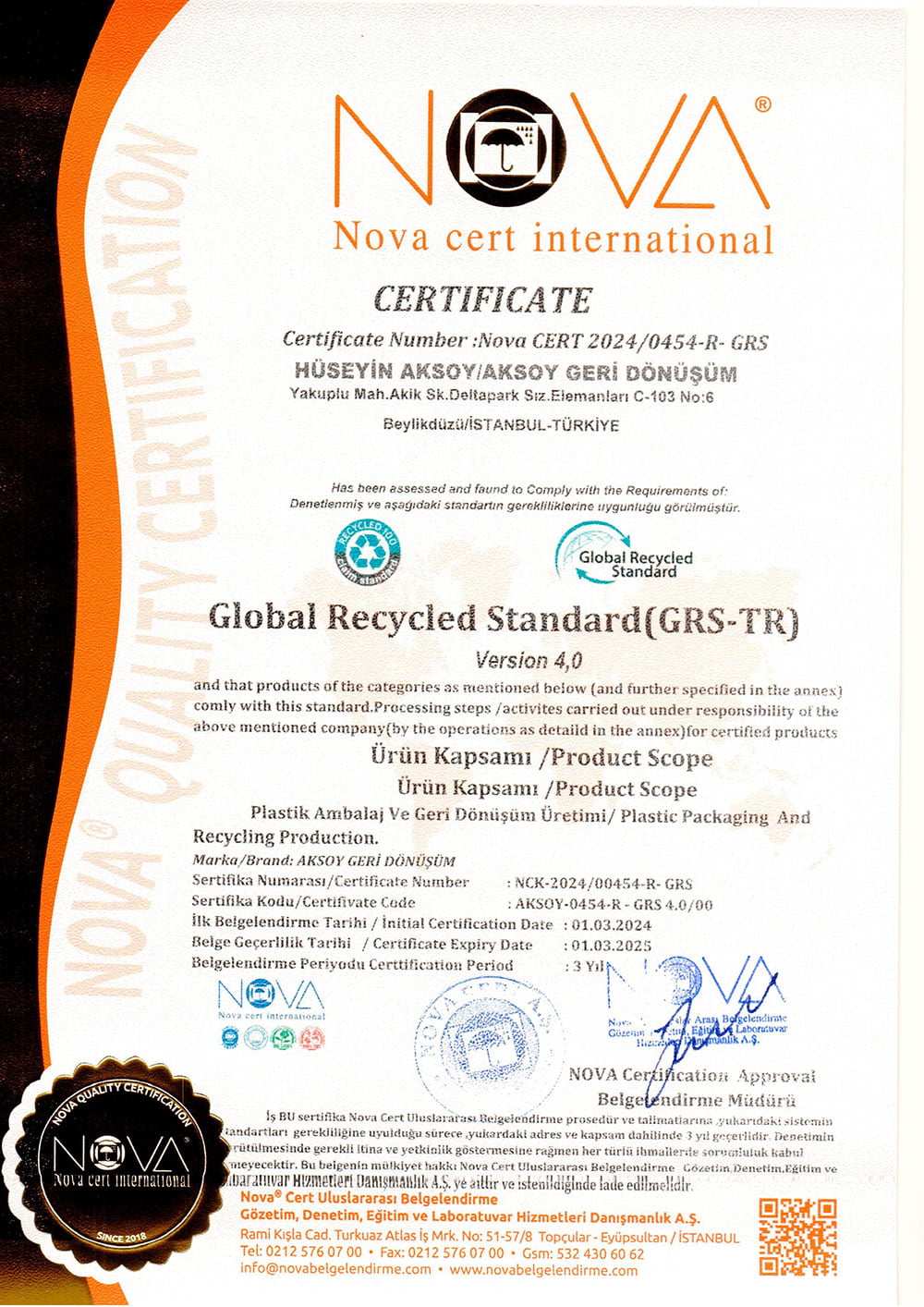The fact that plastic waste damages nature and creates environmental pollution increases the importance of recycling. The recycling process makes plastic waste reusable and represents an environmentally friendly approach. Recycling in the plastics industry is carried out in the following steps:
1. Collection: Collection of plastic waste is the first step of the recycling process. At this stage, recycling bins, waste collection vehicles and recycling centers are used where household waste is collected.
2. Separation: Collected plastic wastes are sorted according to different types. Separation improves the quality of materials used in the recycling process and enables more recycling.
3. Grinding: The sorted plastic wastes are broken into small pieces in the grinding machines. This stage ensures that the plastics are prepared for reuse.
4. Washing: The shredded plastic wastes are washed in washing machines and cleaned of dirt, dust and other residues. This process makes recycling healthier and safer.
5. Drying: Washed plastic wastes are dried in drying machines. This step ensures that the moisture content is reduced and the plastics are processed better.
6. Reprocessing: The dried plastic waste is granulated in reprocessing machines. These granules can be used in the production of new plastic products.
Recycling prevents the depletion of natural resources, saves energy and causes less harm to the environment. Therefore, recycling of plastic waste has an important place in environmental protection studies.
